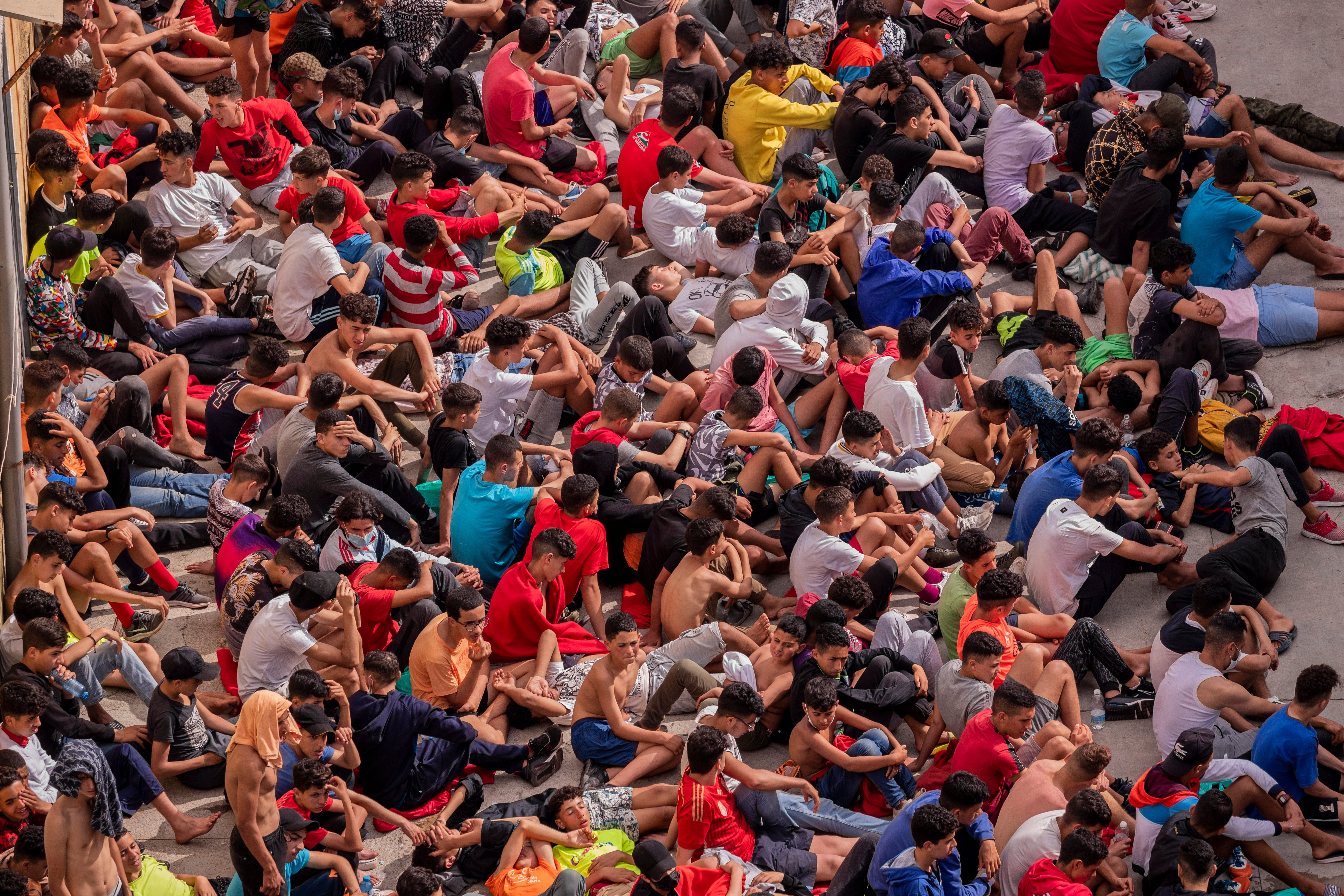Spain, rights groups disagree over rights of child migrants
Spanish officials are seeking to justify their policy of sending unaccompanied child migrants back to Morocco

Your support helps us to tell the story
From reproductive rights to climate change to Big Tech, The Independent is on the ground when the story is developing. Whether it's investigating the financials of Elon Musk's pro-Trump PAC or producing our latest documentary, 'The A Word', which shines a light on the American women fighting for reproductive rights, we know how important it is to parse out the facts from the messaging.
At such a critical moment in US history, we need reporters on the ground. Your donation allows us to keep sending journalists to speak to both sides of the story.
The Independent is trusted by Americans across the entire political spectrum. And unlike many other quality news outlets, we choose not to lock Americans out of our reporting and analysis with paywalls. We believe quality journalism should be available to everyone, paid for by those who can afford it.
Your support makes all the difference.Spanish officials sought to justify Tuesday their policy of sending unaccompanied child migrants back to Morocco while 28 human rights organizations wrote to the Spanish prime minister urging him to end it immediately.
Hundreds of unaccompanied minors were among a surge of 10,000 people who tried to enter Spain’s North African enclave of Ceuta in May by scaling a border fence or swimming around it. They have been in Ceuta since then.
Last Friday, Spanish authorities began sending them back to Morocco in groups of 15, triggering an outcry from rights groups.
Spanish Interior Minister Fernando Grande-Marlaska said Tuesday the returns were taking place under a 2007 agreement between Spain and Morocco for assisted returns once children’s cases had been considered.
Morocco has given “assurances” that the minors’ rights will be respected, he said.
“We are returning the ones that are returnable,” Grande-Marlaska said in an interview with Spanish public radio RNE. “They are not at risk.”
The head of the Ceuta government, Juan Jesús Vivas, acknowledged that the 2007 agreement does not set out specific rules but states that Spain and Morocco have to agree on how to proceed with returns.
Regardless of whether an individual written assessment has been made of each child, he said, for the past three months the minors who have been returned have been accompanied by qualified professionals and no child classified by them as vulnerable has been sent back to Morocco.
But in a letter to Spanish Prime Minister Pedro Sánchez published Tuesday, 28 Spanish and international rights groups insisted the returns are illegal because they are done in groups, without prior warning and without a hearing or the provision of legal counsel.
Because of that, the returns are in contravention of Spanish, European and international law, the rights groups argue.
A Spanish court has suspended the returns until Thursday, giving the government 72 hours to show it is not breaking the law.